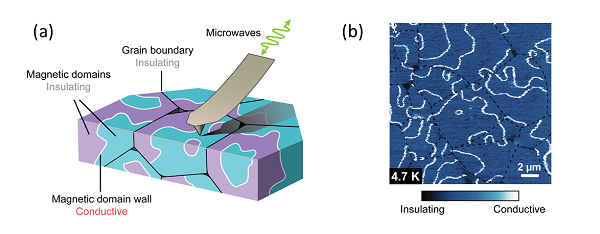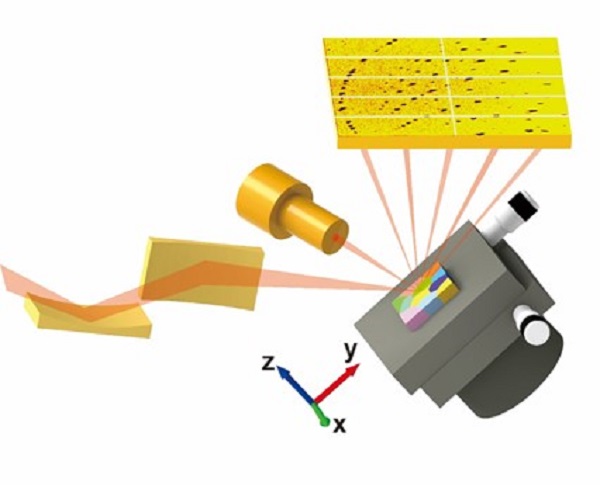A collaborative work by CAMP-Nano at School of Materials Science and Engineering got published on Science
Researchers from Stanford University, the Japanese Institute of Physical and Chemical Research, Shanghai Institute of Microsystem and Information Technology, Chinese Academy of Sciences, Xi’an Jiaotong University and Lawrence Berkeley National Laboratory (LBNL) found high electric conductivity on the magnetic domain of insulators. The important discovery provides strong evidence to the scientific hypothesis which has intrigued scientists for over a decade. Meanwhile, it demonstrates broad application value for design and development of future memory. The findings were lately published on the prestigious Science.

The last research difficulty lies in identifying the nature of conductivity curves observed by the microwave impedance microscopy, through the crystal orientation of polycrystalline material Nd2Ir2O7. This is confronted with four challenges. Firstly, the synthesized material comprises crystals with different orientations, the diameters of which are far smaller than those of human hair. Secondly, researchers are supposed to accurately locate the observation area under the microwave impedance microscopy. It’s like looking for a grain of sand on a sand beach. Thirdly, the polycrystalline material Nd2Ir2O7 is quite crispy and difficult to polish. The conventional EBSD method is therefore not suitable for observation. Fourthly, the crystal structures of Nd2Ir2O7 are very complex, which poses a challenge to interpretation of diffraction spectrum. At last, associate professor Chen Kai from XJTU CAMP Nano at School of Materials Science and Engineering and Dr. Nobumichi Tamura from ALS, the Lawrence Berkeley National Laboratory employed the synchrotron radiation X-ray Laue diffraction and the independently developed data analysis software XMAS to successfully complete the research.

One of the collaborators Dr. Cui Yongtao, a post doc at Stanford, is a middle school classmate of associate professor Chen Kai. They both attended the experiment sciences class at the Affiliated School to Xi’an Jiaotong University (from 1998-2001).

